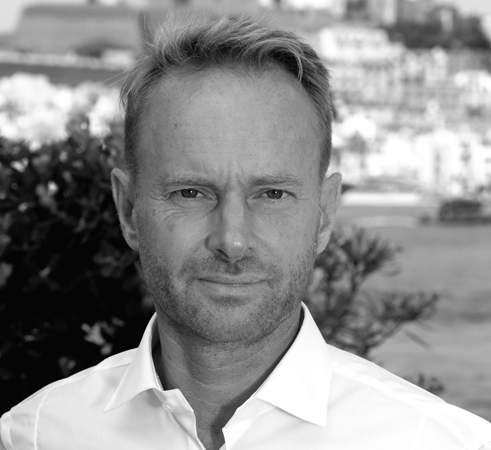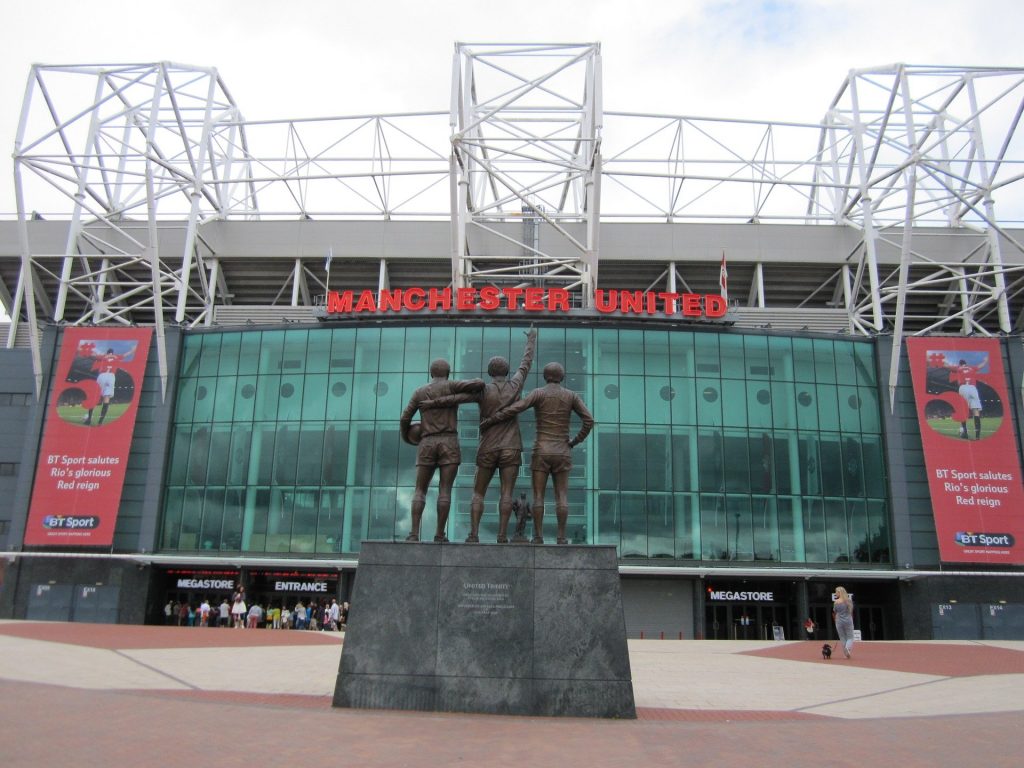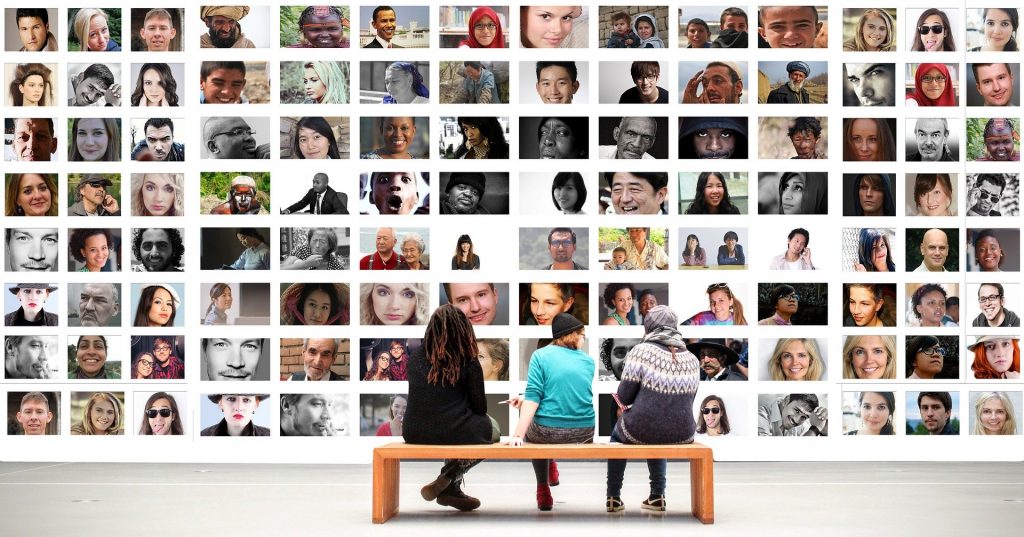Paul Cheetham is the MD and owner of Sedulo – a firm of financial consultants focussing on entrepreneurs, as well as looking after several footballers, entertainers and musicians. Here – along with students from Salford University Business School – Lee Dinsdale asks Paul about his business, being an entrepreneur, networking, overcoming challenges and staying motivated.
Inerview with Paul Cheetham at Unity Radio – The Real Sound of the City.
Lee: This morning we have Paul Cheatham, who is the MD owner of a business called Sedulo. This afternoon we are going to be talking about what Paul’s business does. He is also a business advisor to sportsmen and women, and also a lot of people in the music industry, as well as being a business owner himself. We are also delighted that we’ve got some students in from Salford University again to join us, who will be asking Paul some questions too. So first of all Paul, can you give us a little bit of a snapshot about what Sedulo is please?
Paul: Sedulo started out as an accountancy firm but we’ve since moved on from that. We build businesses in the main. High growth businesses, we build them and as a result of that, we need all the different facets that an entrepreneur or an individual would need to grow their business or their own brand. We have accountancy, we have banking, we have corporate finance, we have wealth management. So we do the whole gambit working for busy entrepreneurs or individuals.
Lee: I mentioned before that you look after some music industry stars and some sports people. Can you give us a little bit of a snapshot of who they could be, because I think some of our radio listeners would know one of them in particular anyway.
Paul: On the corporate side we look after brands like Forever Unique, Missy Empire, quite big fashion brands that are doing well out of Manchester. On the sports side we look after Toronto Wolfpack, we look after Salford, Stockport, Oldham, national governing bodies and then we also look after individuals in our sport and media hour. I think we have about fifty premier league players. We also look after some musicians. We look after Bugzy, who most of your listeners will probably know.
Lee: So with Bugzy Malone, later on in the chat we are going to do a bit of a masterclass of what you’ve seen. Some of the attributes of what Bugzy’s done, hard work etc. to see what people can take away from that. Can you give us a snapshot into how did you end up setting up your company? Better question is, can you remember what you were doing at sixteen, seventeen, eighteen please?
Paul: Yes, I’d left school and all I wanted to do was play sport. I wanted to be a PE teacher. So sixteen, seventeen, eighteen all the way to twenty one, for me was about doing A-levels and a sports science degree, which was my first degree. That was simply because, at the age of twenty one, I wanted to get into being a PE teacher.
Lee: And after PE teacher, what did you do then?
Paul: I finished my degree, and then I had a complete career change. I looked at the infrastructure if I’m being honest, about the pay and if you are a teacher, you’re in an infrastructure where you get paid a certain amount. I didn’t want that glass ceiling, so I just changed my career there and then. I got a job as an accountant.
Lee: I think April, from Salford University has a question for you.
April: Hi Lee. Thank you for the opportunity, I’m really good. Hi Paul, what inspired you to start your own business?
Paul: I’d got a job as an accountant, internally within a business and you’re very hands on in that kind of role. You make decisions in the future and the now. I then went to get a job in an accountancy practice where you tend to do legislative compliance things. So you’re looking backwards in history and I didn’t really like that, I wanted to make a difference. So I’d done both difference sides of the fence, and I decided to combine then together and Sedulo effectively does that forward thinking advisory work, but in a practice external setting. I couldn’t find anybody that did it, so it just naturally came and I did it myself.
Lee: Had you always wanted to own your own business? I wonder sometimes, with people as they go through life, do they start working for someone, and then say do you know what – I can do this myself. I’m going to break free and set up my own business. Is that something you had been thinking about when you were younger as to where you are now?
Paul: Never. It just happened naturally. It just really happened that I couldn’t find the job that I wanted to do. I couldn’t find the role that I wanted to do and I just naturally set about it myself. It wasn’t like a light bulb moment- it just kind of happened.
Lee: What is it like for you Paul, in terms of owning your own business?
Paul: I think I just mentioned earlier, the reason I didn’t get into my original career is because I didn’t want a glass ceiling above my head. I think the best thing about owning your own company is, there is none of that. I’m forty years old now, and I don’t know where the ceiling is, I don’t know where it ends. We’re growing every year, a hundred staff now. Sometimes it’s further on than what I thought it would be and yet I don’t know where the end point is. That for me is exciting and challenging.
Lee: You’ve hit the nail on the head. You’re only limited then by your own thoughts and actions, or your own motivation, so it’s how far do you want to go and it gives you the freedom I think to crack on and be successful in whatever way that is to you. In the studio we’ve also got Ahmed from Salford University. You’ve got a question haven’t you for Paul?
….The reason I didn’t get into my original career is because I didn’t want a glass ceiling above my head. I think the best thing about owning your own company is, there is none of that. I’m forty years old now, and I don’t know where the ceiling is, I don’t know where it ends.
Ahmed: The question is how do you overcome challenges as a leader within your organisation?
Paul: It’s a really tough question that. The challenges change over a period of time. The first challenge is to sign a client. That’s pretty much everybody’s, and you don’t know whether that’s going to work or not, so you just try things and you fail. Then you try other things and you fail again. You keep doing that until you hit on something that works, and when you find something that works you follow it. What you’ll find is you’ll follow it and then there will become a point where then that doesn’t work ,so if I look at our business with a hundred staff, what we do today is completely different to what we did when there was five of us and then ten. The thing about having a successful business is, people think when you get to success there’s less challenges. There’s exactly the same amount of challenges, they are just different.
Lee: You’ve got another question?
Ahmed: What do you think about networking in an organisation and how important is it?
Paul: You’ve got networking and you’ve got social networking. I prefer to social network because I think you can get to a lot more people that way. Networking is still important to us and we do plenty of it. We’ve got offices in Leeds, Manchester and London now and we’re regularly out. It brings in that thing, that work/life balance because sometimes you don’t know what’s work and what’s life because a lot of it is involved social networking.
Lee: I just wanted to ask you – we often talk about motivation on this segment on a Tuesday. Everybody is motivated for different reasons and often performance, whether it’s performance in business, achieving things, your skill, capability and then also your motivation to do something as well. Whether it’s in business or anything you set your mind to. How do you personally stay motivated, what’s driving you forward? We’ve talked about you’ve got five staff, ten staff then a hundred staff, it’s a significant achievement, congratulations by the way. How do you stay motivated Paul?
Paul: I think your motivation changes over time. When I originally set the business up it was to do something different. Then human nature makes you think, actually I’m going to look after myself. Then you want to look after your immediates and I’ve got three kids and a family now, so it’s look after them. Then it ripples out again and you want to look after the next layer of family. Then it becomes friends, then before you know it, it’s what can I do for the community? It’s not just me – across my client base it’s a common theme. You see the ones that have made it, or what people would describe as made it, and actually you just start getting driven by different things. In the end you end up being driven by how much changes can you make for others.
Lee: On that note, I went into your offices a few weeks ago for a bit of a chat and I’ll let you describe what the offices are. That building at Deansgate – when you get inside it, it’s great.
Paul: It’s different. We’ve got a rooftop reggae bar. We’ve got a New York bar in Manchester. We’ve got a pool room, we’ve got a sweet shop. In Leeds we’ve got a great Gatsby, we’ve got an indoor lawn and that’s all great you know and it looks fantastic. It’s a calming environment for the staff to work in. What you’ve got to be careful of is, thinking culture is about putting a pool table in an office, and it’s not. So we do do all that, but it’s also important to make sure you understand as an employer what’s in it for them. It’s great having a culture, but the relevance of it is everybody working in that organisation needs to know, whatever you’re doing, what’s in it for them. So we look after that. We also look after wellbeing. We have a big nutritional and mental wellbeing side to our business, and I think that’s very important nowadays with mental health and physical health and everything else.
[A short break follows.]
Lee: Still to come we have a bit of a masterclass, for all those singers and rappers who are in Manchester and want to progress into the music industry. Paul looks after clients such as Bugzy Malone. We also have students from Salford University who are here asking Paul some questions, and Ahmed has just asked me to shout out to his friends from Salford University who are listening. So hello to Nadine, hello to Tara and hello to Sam. We should have quite a few people listening who own small businesses or maybe thinking about applying for a job and we are going to get into some very simplistic advice and some things to be aware of from Paul. So first of all, setting up or running a small business. Give us three of your top tips of what they are, and why they are important.
Paul: I think rule number one is do something that you are passionate about, something you love. People who do well always seem to be the ones that are engaged with what they are doing. I think sometimes people can get into business for the sake of getting into business and they’re the one I see that tend to drop off. So tip number one is to do something that you really love and really passionate about.
Lee: Okay, that is a familiar theme I think when we’ve had business owners come in. They’ve always talked about passion as being one of the main drivers, so tip number two?
Paul: Have clear focus. It’s so important. Sometimes you’re alone often as entrepreneur business owner, so you’ve got to have a clear focus and a clear goal. That’s a key for me, you’ve got to stay focussed – it gives you the courage of your convictions you see. When you’re making decisions, sometimes you don’t have anybody to bounce off.
Lee: Yes I agree. Getting a clear focus of why you’re also doing something and what does it mean helps the drive when you are in those moments of, oh God these are difficult challenges. But that’s why I’m doing it, so you keep focussed on your number one goal whatever that is. Everybody is different really in what they are doing things for. Top tip number three please?
Paul: Well this is crazy coming from an accountant but don’t follow the money! A lot of people, again, get into business and are so focussed on the numbers. The numbers and money is a by- product of a successful l business, so focus on the business and the money will come.
Lee: You have a hundred staff now, so from an employment perspective, you’ve seen a lot of people come through your doors. I’m sure you’ve interviewed quite a lot of people. I’d just like to ask your thoughts and some advice, not necessarily for people applying for a job in finance, but there will be some common themes that you look for in an individual when they apply for jobs. What would they be please?
Paul: The first one is the same as owning your own business – that’s try and do something that you’re interested and passionate about, something you love. I bet if you ask any interviewer or business owner, you’re probably going to get that as a common theme. So that would be number one. Number two is be yourself. As an interviewer it’s sometimes so frustrating to have an interview where you really want to get to know what the person wants and what drives them, and who they are, because you’ve got to work with them. It’s a very close bond and close relationship. So in an interview try not to fall into that trap of rehearsing questions, you’re better off just being yourself.
Lee: And a last tip for someone coming through for an interview.
Paul: It’s that long since I’ve been for an interview, I’m not sure if I’ve got one! Instead of three, do one and two!
Lee: Okay, just a bit of a recap. Do something you’re interested in, be passionate, and also be yourself. Sarah from Salford University has a question for you. Fire away.
Sarah: Hi, Paul, my question is how important is culture diversity in your organisation?
Paul: Great question. It’s essential to any organisation, not just mine. It’s funny because when you first set up a business, you kind of employ people similar to yourself, because when you’ve got two, three or four or five you really are one to one with them you know. You have a really close bond, so you tend to want to replicate yourself out. When you get from maybe five to ten employees, you start to realise that your downfalls and your negatives are repeated then across everybody else. The first seven recruits were like mirrors of me, and then after that I wanted everything but me! The great businesses out there are the ones that embrace differences. Difference of opinions, diversity in general and that could be sexual orientation, it’s everything. The great businesses are going to be the ones, and are the ones, that embrace that and along the way we’ve constantly brought in people from different backgrounds, regardless if you like of whether or not they are the best candidate for the job, but more because in an organisation with a hundred staff you need to have that diverse approach, opinion, problem solving – brings with it so many different positives.
The great businesses out there are the ones that embrace differences. Difference of opinions, diversity in general and that could be sexual orientation, it’s everything.
Lee: Obviously you’re looking after a lot of business owners, a lot of individuals. There are some that make it, there are some that don’t. From an advising perspective, and I’m sure you see what some of those trends actually are. Give us, from your experience, what do you see makes the difference to the people who are making the difference, as an individual? What attributes do they have?
Paul: The key word is consistency. Whether that’s sport, whether that’s – whatever you want to be, everybody can be a superstar for one game if it was in sport, or they can do something great that day. But the ones that end up succeeding, in the end are the ones that overcome the adversity constantly; have that persistence, have that resilience, but they never lose that level of consistency, regardless of whether they become what others might deem as successful – they kind of keep going.
[A short break follows.]
Lee: Now we’re going to focus on Pauls’ experience really working with people in the music industry, because he does see the difference between those that make it, and those that don’t. From a business side, besides talent, we’re looking more at what you can do to help yourself move forward on that journey, would that be fair to say Paul? You’ve got a good experience now being able to relay from your side, from an advisory perspective, what makes the difference. Tell us a little bit about the story of Bugzy. How did that relationship come about, and then we can move on from there.
Paul: We have a sport and media hour at Sedulo, so we have a lot of people on the TV; a lot of people playing and quite a few in the entertainment and we got introduced to Bugzy maybe eighteen months ago, something like that. We got introduced to him through a corporate client that we were working for, and he was building his team. He runs a business, there’s no doubt about that, and we’ll talk about that a bit later. He wanted to beef his team up, so he came and approached us.
Lee: Okay. What do you think from a starting point, if we looked at maybe three or four different key things of what is important, from looking at somebody in the music industry? What are your first thoughts to keep focussed on?
Paul: I was at the show on Thursday at Mayfield Depot, and you noticed that the first person he thanked at the end of it was one of the guys who has been with him from the start. If you asked what the first thing he did was, he overcome the barriers that were in his way. So he thanked the guy who gave him free studio time, when he didn’t have the money to pay for studio time. If you’re going to stop at the first barrier it would have stopped there. He came up with an idea or a plan, and he still works with the guy now, and he’s obviously more successful now. Taking the theme of that is first of all, there’s going to be barriers in your way, whether that’s music, whatever that is. People are going to put the barriers up, and you just have to knock them down and find a solution to either get around it, under it, or over it. It’s as simple as that.
Lee: I think Bugzy is notorious for his hard work as well so you will be seeing that up close. Tell us a bit more about what you think about the hard work factor, and what is the reality of what you have to put in, compared to what you think you have to put in.
Paul: Crazily hard working. He’s broke down some barriers of course and the next thing is his tenacity. Some people think musicians or whatever, they just what they do on stage is what they do on stage. One of the other tips is he’s a great ambassador for living the life. So it’s not just the hard work he puts in in terms of just the music, he lives the life. You look at his physique. You look how hard he trains, how hard disciplined he is on his eating. He’s a guy who is inspirational to many but it’s not because of chance. He’s not a guy who’s got lucky and got a break. He’s had to break down barriers and when he’s broke down those barriers, he’s took advantage of them. That means daily, daily, almost hourly living the life.
Lee: I think what you just touched upon there – the key word that I’ve taken out is discipline. Being disciplined, and how does that then move across in all areas of your life, not just in your hard work. Does that translate into getting up at six o’clock in the morning, and going to the gym and cracking on and getting stuck into what you’ve got to do that day?
Paul: The thing about Bugzy in particular is, he’s got a very very clear plan. So he’s already planning in two years what’s going to happen. He’s not living day by day. Just like if you’re a business owner, you’ve got to have a goal and a plan like we discussed earlier and your goal can’t be what you are going to do next week. His is a very, very clearly defined plan and he doesn’t deviate from that plan. So there’s a lot to be learned I think from the Manchester scene. To look at somebody like that, who’s made it out of our kind of city, but by no means think that he’s been lucky or he’s made it by chance. Every single decision he makes, is meticulously thought through. It’s about a journey that he’s on and obviously I speak to him a lot and I know what his journey looks like in the next year or two. I knew what his B. Inspired album looked like last year. Funny enough I was out to dinner with him last night, and he was saying, do you remember when I told you a year ago what we were going to do? He’d meticulously planned it.
Lee: What else do think from a business side of activity, do younger musicians, rappers need to be aware of, like, I guess boring kind of things of setting up your finances. Anything more or simple things that you recommend to make sure you’re going in the right path?
Paul: You look at someone like him and he’s got his own label. He could easily sign up for a major now. He doesn’t do that. Everything he does is from the ground upwards, whether that’s advertising, whether it was flyers. Whether it was just singing everywhere, whether it was getting his name out, whether it was social. In the earlier days he was in control of everything, and I think you’ve just got to, like I said about business before, you’ve got to just try things. You’re going to fail time and time again, but the people in business, music or whatever – the ones that succeed are the ones that just keep going, keep finding solutions, and show that persistence to overcome.
Lee: So that’s persistence, we’ve got overcoming barriers; we’ve also got some discipline there and having a clear goal. So some great pieces of advice there Paul for people in the music industry. Thank you very much for coming in this afternoon. We’ve talked a little bit about your history. We’ve had students on. We’ve had April, we’ve had Sarah; we’ve had Ahmed on – all from Salford University Business School asking some questions. That’s it from me. Thank you very much everybody for listening and have a fantastic rest of the day.
Article Transcription by Terry Capostagno
Leave Your Comments
What did you think of Paul\’s story? Please feel free to leave your comments about anything discussed in this interview in the comments section below.
GET IN TOUCH
Take your first steps to Achieving Excellence with Logros. Call or email us for more details.
Complete and we will keep you updated with the latest edition of the “The Logros”.
It is not a question of what are you going to do just simply who do you want to be
Lee Dinsdale





